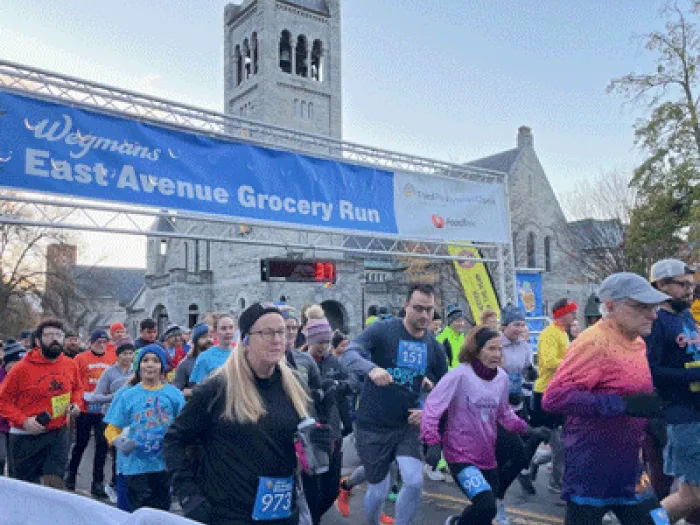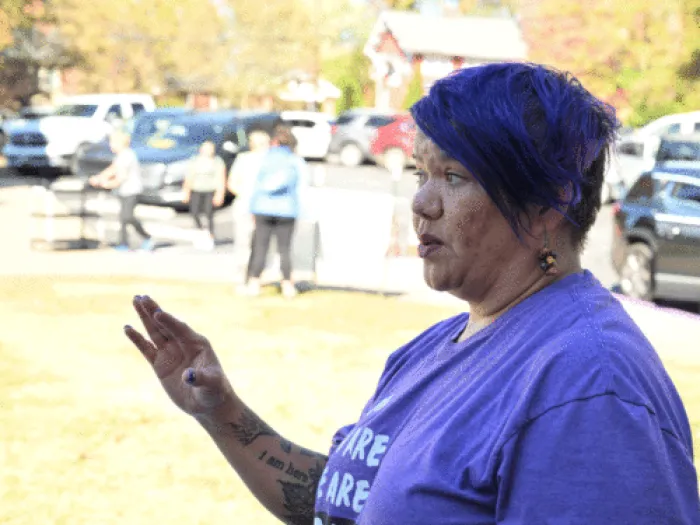Anti-human trafficking campaign empowers women and protects children in Madagascar
Jan. 28 webinar focuses on combating domestic violence and rescuing victims of forced labor trafficking


MADAGASCAR — Once rescued, survivors of human trafficking are often reluctant to talk about their experiences. This is usually because they are afraid of being blamed by family and community for the exploitation and abuse they’ve suffered at the hands of bosses and employment agencies.
Juliette is speaking out (not her real name). She is concerned about other women who may fall victim to profiteers. She even agreed to have her personal story recorded, trusting it will be shared with sensitivity.
Juliette decided to escape Madagascar’s financial crisis after a military coup in 2009. She approached a recruitment agency that offered her employment in Kuwait. Yet the hard work, lack of free time and imposed religious observances took a toll on her health and eventually landed her in a hospital.
Juliette realized it would be better for her to return to her home, but she faced many obstacles: “The agency didn’t allow me to return to Madagascar. The agency wanted me to stay and work. Then the people at the agency beat me and forced me back to work.” Complicating Juliette’s situation was the fact that her passport had been confiscated upon her arrival at Kuwait’s airport, and Madagascar has no diplomatic representation in Kuwait to advocate on her behalf. Eventually, she escaped and ran to the French Embassy, where staff helped her find temporary shelter.

Juliette is one of 235 trafficked Malagasy women rescued from working against their will in Lebanon or Kuwait over the past decade with the help of the Rev. Helivao Poget.
Poget is director of the Ministry for Marginalized People (SAFFIFAA) of the Church of Jesus Christ in Madagascar (FJKM). She served as an international peacemaker with the Presbyterian Peacemaking program in 2013 and is working to end human trafficking in Madagascar and elsewhere through prevention. She has come to realize that successful prevention efforts begin in addressing issues of domestic violence and poverty, issues that make women more vulnerable to being trafficked into a situation of forced labor or worse.
SAFFIFAA began in 2009, under the auspices of FJKM’s Chaplaincy Program to address the hardship of vulnerable groups as a result of the political crisis. When an FJKM member phoned Poget, alarmed about a close relative who was trapped in a similar employment scheme in Kuwait, Helivao traveled to Kuwait to evaluate the situation. She found scores of Malagasy women in similar situations, including Juliette, and eventually helped secure their return to Madagascar.
Once these women were back home in Madagascar, Poget started pondering how to counter the migration phenomenon in Madagascar that ultimately leads to trafficking abroad. She concluded that a dangerous concoction of domestic violence, local customs and severe poverty renders particularly young women from rural communities vulnerable:

“In our assessment of the situation of trafficking survivors who return home, most of the women leaving are already survivors of domestic violence. They say: “We already are victims of assault and battery within our own families. We are already prepared to be beaten. Even if we are going to be beaten … it would be by someone else that we don’t know, but maybe we’d have a good salary.”
This is how Helivao shifted her focus to address human trafficking in Madagascar and elsewhere towards prevention, which begins with addressing domestic violence and raising awareness of the risks of being trafficked into a situation of forced labor or worse. Thanks to a 2019 Presbyterian Women Thank Offering grant for SAFFIFAA, Poget launched a human trafficking prevention campaign called Mamonjy, which means “save” in the Malagasy language.
As a missiology professor on the FJKM theological faculty, she engages her former students in the campaign and works with the FJKM’s regional synod committees to organize awareness-building activities for local congregations in 10 zones, which she has identified as the most vulnerable areas across the island nation.
The campaign’s tools vary from banners with anti-trafficking slogans based on Scripture, to posters that facilitate conversations about the various forms of domestic violence and crayons for the youngest generations to draw pictures of things for sale in the marketplace.
The message for them is “You are a beautiful creation of God. You are not for sale!”
-----
January is Human Trafficking Awareness Month
Plan to attend “Mamonjy = Save,” a webinar hosted by the Africa area office of Presbyterian World Mission about the Human Trafficking Prevention Campaign of the Church of Jesus Christ in Madagascar (FJKM). The webinar will last approximately one hour and will include the Rev. Helivao Poget (FJKM), along with World Mission staff such as Christi Boyd, facilitator for women and children’s interests in Africa, and Doug Tilton, regional liaison for Southern Africa.
The Mamonjy = Save webinar will be live at noon (ET) on Tuesday, Jan. 28. All registrants will receive a confirmation email with details on how to join the webinar from a PC, Mac, iPad, iPhone or Android device. Register now to attend the webinar.
The Peace & Global Witness Offering supports the peace and reconciliation work of church partners through World Mission.
Christi Boyd, a PC(USA) mission co-worker and facilitator of women’s and children’s interests based in the Democratic Republic of Congo, works alongside World Mission’s partners in Congo, Niger, Rwanda, South Sudan and Madagascar to tackle systemic issues that perpetuate hardship for women and children from childhood trauma in Congo to migration and human trafficking in Madagascar.
You may freely reuse and distribute this article in its entirety for non-commercial purposes in any medium. Please include author attribution, photography credits, and a link to the original article. This work is licensed under a Creative Commons Attribution-NonCommercial-NoDeratives 4.0 International License.




